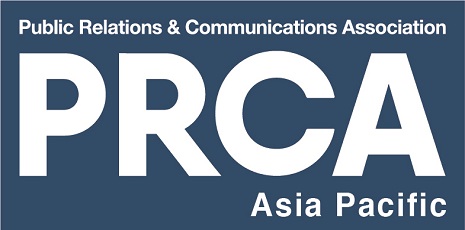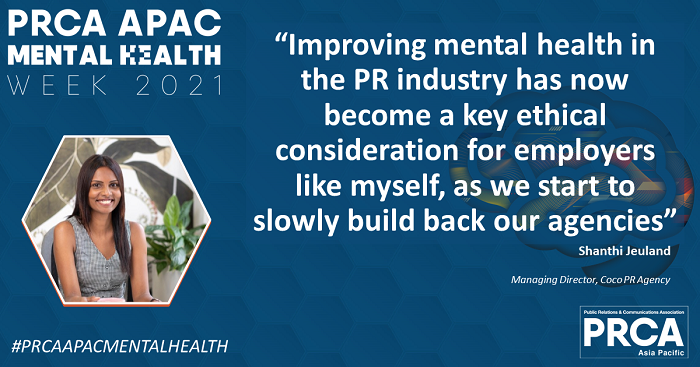In recent years, there has been increasing acknowledgement of the important role mental health plays in ensuring our emotional, psychological, and social well-being. In response to this, across the globe, a slew of initiatives such as the National Care Hotline in Singapore and the WHO Special Initiative for Mental Health focused on providing affordable and accessible mental healthcare have been rolled out.
In the PR industry, it has long been established that we are facing a mental health crisis and need systemic change. According to recent research by both PRCA and Opinium, almost 89% of PR practitioners ‘struggle with [their] mental wellbeing’, with careers that are characterised by “poor work-life balance”, “stress” and the “never-ending hustle culture”. Furthermore, 3 in 10 PR professionals who struggle with their mental health avoid opening to both clients and colleagues about these struggles in the fear that it might jeopardise their careers.
It has not been an easy journey for all businesses. Throughout the COVID-19 pandemic, the PR practitioner has had to navigate a significant number of challenges. Overnight, some had lost some of our biggest clients in the once profitable travel and hospitality industries and have had to venture into new territories, keeping their grit and resilience intact. We have had to adapt all events and campaigns to keep up with the rapid digitalisation that was taking place, all while actively contributing to retainer clients’ recovery of business. With the brunt of our work focused on social interactions and maintaining relationships, the new normal has brought upon us a collective sense of alienation from people we were once physically close to daily, on top of hefty workloads and tighter deadlines.
Improving mental health in the PR industry has now become a key ethical consideration for employers like myself, as we start to slowly build back our agencies. We need a reset of our working culture, and we can start by injecting greater intentionality in the initiatives we carry out to protect our employees’ wellbeing. At an industry level, we must encourage practitioners to have open dialogues about the mental health struggles we face in our profession, while validating what they feel about their situation. This will allow us to come up with effective frameworks and charters that agencies, both big and small, can apply to their own situations. Senior practitioners, like myself, must make it a point to undergo basic mental health training so that we are able to offer our colleagues the support they need when it comes to it. Having to lose two family members in my life has taught me about grief and how to overcome mental health.
Within my own agency, I make it a priority to actively check in on my colleagues and encourage them to be open about the struggles they are facing. If there’s any form of support I can offer in my own capacity, whether that is by negotiating deadlines with clients or just by offering a listening ear, I will ensure it to be one of my top priorities and carry them out duly. Where clients are concerned, I encourage my employees to log off strictly at 6pm so that they can catch a proper break from work. But of course, when there are tight deadlines, the team ensures that the task is properly executed.
It’s gospel truth that healthier people make for a happier working environment. It is in everyone’s best interests to support and implement purposeful mental health initiatives. If we as an industry can be more intentional about this, we can look forward to benefiting from a healthier workforce that’s thriving, more productive with greater talent retention.
PR is after all; meant to be an uplifting and creative career and we should do our best to ensure it remains so.



